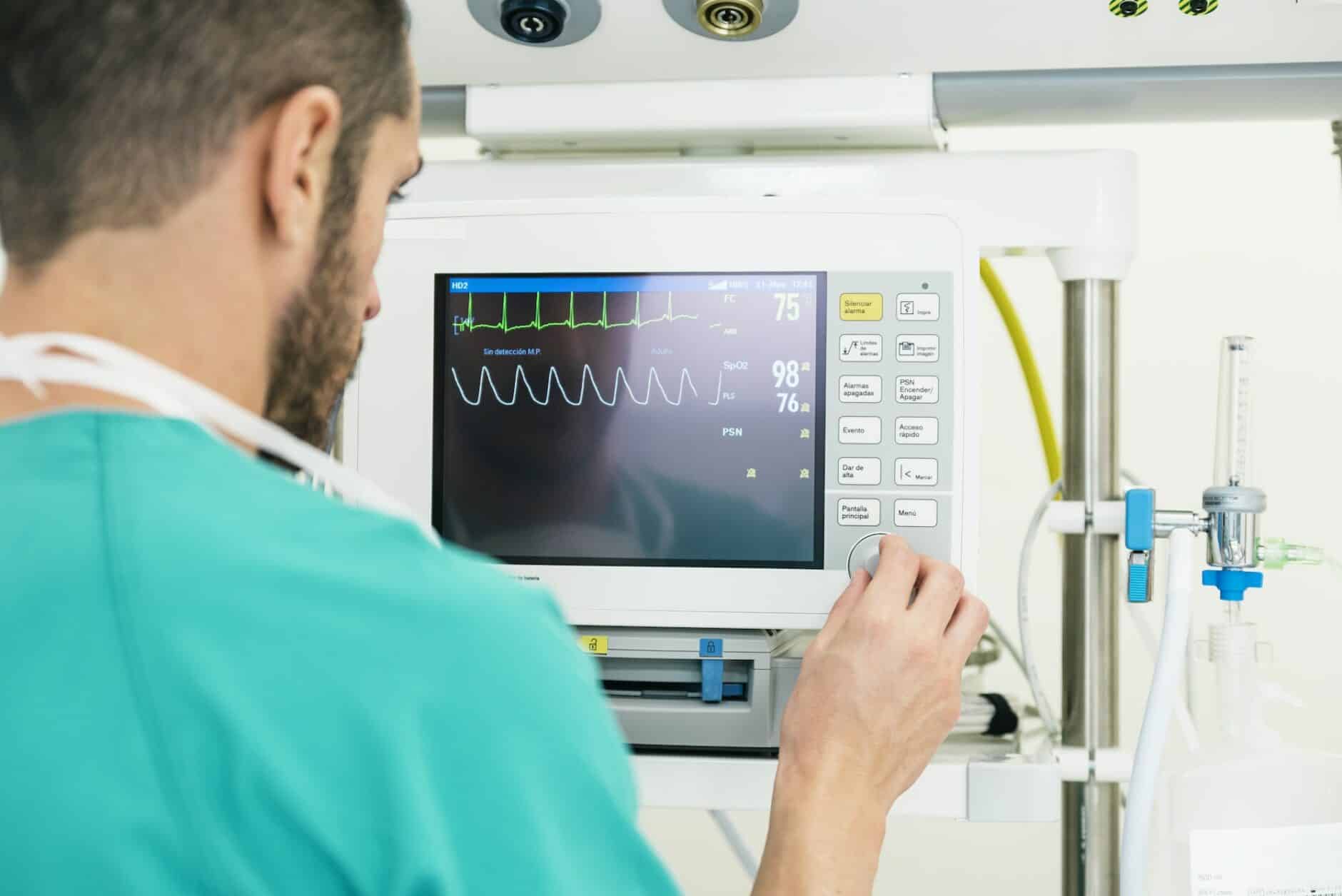Electrocardiography is experiencing fascinating breakthroughs that will revolutionize the field. As an indispensable tool for detecting and monitoring various cardiac conditions, recent advances such as wearable devices, AI-powered interpretation, and non-contact monitoring systems show immense potential for improving the accuracy, accessibility, and personalization of ECG technology.
Keep reading for more on the latest innovations shaping modern ECG technology and how these developments impact patient care.
Recent Advances In ECG Technology
ECGs have long been a go-to tool for physicians to analyze a patient’s heart function and diagnose cardiac conditions and diseases. The primary purpose of an ECG is to record the heart’s electrical activity and provide important information about its function.
While the core function of the ECG has not changed too much since it was invented more than a century ago, the practice and technology have evolved immensely since its inception. Recent advances in ECG technology have significantly improved accuracy, efficiency, and accessibility, revolutionizing cardiac care by enhancing the diagnosis, monitoring, and treatment of various cardiovascular conditions.
Wearable ECG Devices
Wearable ECG devices have revolutionized cardiovascular monitoring, providing a convenient and noninvasive way to track cardiac activity in real time. These innovative devices can be found in various forms, including smartwatches, chest straps, and adhesive patches that can be easily worn throughout the day.
For example, the Apple Watch Series 4 and later models have an FDA-approved built-in ECG app that can detect atrial fibrillation. AFib is a common but often undiagnosed form of irregular heartbeat that can lead to serious complications if left untreated, making a wearable ECG a potentially life-saving accessory for some.
Additionally, companies like BioTel Heart offer the CardioKey – an ultra-thin sensor that attaches directly to the skin and continuously collects ECG data over 14 days. Several other companies also offer this technology.
AI-assisted ECG Interpretation
Breakthroughs in artificial intelligence technology have had a significant impact on ECG interpretation in recent years. AI-powered algorithms are being used to analyze large sets of complex data to help improve the efficiency and accuracy of diagnosis by healthcare professionals.
One promising result of AI-assisted ECG interpretation is the ability to detect arrhythmias, ST-segment changes, QT prolongations, and othzer abnormalities that humans might miss.
Researchers have also found that automated interpretation using machine learning methods proved helpful in identifying underlying paroxysmal AF patients.
Portable ECG Monitors
Portable ECG monitors are another recent advancement, allowing patients to monitor their heart health outside the clinic. These small, handheld gadgets can record and transmit heart electrical activity data using leads placed on the chest.
Patients can then send this data to their healthcare provider for analysis. Portable ECG monitors can be beneficial for detecting irregularities such as arrhythmias or atrial fibrillation, which can occur intermittently.
Aside from convenience, portable ECG monitors also provide more accurate and detailed data than other forms of electrocardiography since they’re monitored continuously for longer periods.
This is especially true for emerging wearable technology, which provides real-time emergency monitoring and alerting.
Contactless Monitoring Systems
One of the most exciting advances in recent ECG technology is the development of contactless monitoring systems. As the name implies, contactless monitoring systems eliminate the need to attach electrodes directly to the body.
Researchers have developed a pulse radar ultra-wideband system (IR-UWB) that can accurately measure heart motion from several meters away. Flexible sensors and machine-learning algorithms are also being used in wireless ECG monitoring systems to provide real-time data on cardiac function without the need for direct skin contact.
These systems are much more comfortable for patients and allow for longer data collection, allowing physicians to detect irregular rhythms that may not be noticeable with shorter recordings.
Cloud-based Systems
Cloud-based systems have become an increasingly popular option for hosting and analyzing ECG data in real time. These systems allow healthcare professionals to access patient data from any location, which can be especially helpful for those requiring frequent ECG monitoring.
Cloud-based platforms are scalable and cost-effective, making them a more accessible option for patients and medical providers. Cloud-based machine learning algorithms and 3D computer simulations allow medical professionals to quickly and accurately detect irregular heart rhythms or other cardiac events, effectively transforming the landscape of ECG interpretation.
Integration With Telemedicine
With the rise of telemedicine in recent years and the importance of Electrocardiography as a diagnostic tool, it should be no surprise that considerable time and investment have been put into integrating ECG tech with virtual care.
Through remote monitoring devices, physicians can now monitor patients’ cardiac status in real-time without them having to leave their homes. Telemedicine also enables closer collaboration between physicians in different locations, improving communication and shared decision-making on patient treatment plans.
In addition, these technologies ensure that accurate data is collected, analyzed, and used in clinical decision-making processes.
How These Advancements Impact Patient Care
The latest ECG technology advancements have brought numerous benefits for both patients and healthcare providers. These benefits improve the overall diagnostic process and contribute to better patient outcomes and more efficient healthcare delivery.
Improved Accuracy In Detecting Heart Conditions
One of the main benefits of recent ECG advances is improved accuracy in detecting heart disease. With AI-powered ECG interpretation and algorithmic innovations, medical professionals can now rely on technology to provide more accurate diagnoses and treatment plans for patients with cardiovascular disease.
Research has shown that machine learning algorithms can detect subtle changes on an ECG that might escape the human eye, leading to earlier detection and intervention for patients at risk.
Additionally, cloud-based systems enable healthcare providers to remotely review patient data and ensure that critical information is always available when needed.
Greater Efficiency In Data Collection And Analysis
Data acquisition and analysis have also significantly benefited from recent leaps forward in ECG tech. Since patients can now utilize wearable ECG devices, real-time data can be reliably collected without regular in-office visits.
Not only is ECG data easier to collect from patients, but the AI advancements we touched on earlier have also shown great promise in the analysis and interpretation of ECG data, assisting with the early detection of cardiovascular disease and other concerns.
What’s even more exciting is that as researchers continue to acquire more ECG data, they will be able to build better predictive models that will only help to improve personalized patient care and management further.
More Personalization In Healthcare
One of the most important benefits of recent advances in ECG technology is the improvement of personalized healthcare. Patient outcomes tend to improve when patients have better access to healthcare, and doctors have more regular and more accurate access to patient data.
Telemedicine has also made it easier for patients living in remote or underserved areas to receive high-quality care.
Using cloud-based systems, physicians can remotely analyze ECG readings and make diagnoses without being there in person. This saves time, reduces costs associated with hospitalizations, and ensures equal access to advanced ECG technology regardless of location.
Challenges And Ethical Considerations
While offering numerous benefits, these technological changes can also present challenges and ethical considerations for healthcare providers. By acknowledging these concerns and taking appropriate action, healthcare professionals can ensure responsible and effective use of these innovative technologies.
User Error And Device Accuracy
Ensuring the accuracy of ECG devices is critical for detecting and treating heart disease—however, potential challenges related to user error and device accuracy must be considered.
User error can occur when patients don’t apply or wear the device as prescribed, resulting in inaccurate readings. Device accuracy can also depend on signal quality and hardware limitations.
To combat these issues, manufacturers have continued to introduce new product designs, safeguards, and devices and provide easier access to training and educational materials for the devices.
Privacy Concerns
Privacy concerns are also a challenge that modern ECG tech faces, especially with devices that connect to the Internet. For example, the data that is collected by wearable devices is often transmitted via the Internet, making it susceptible to interception.
Further, since the devices themselves are Internet-enabled, they may be vulnerable to hacking or sabotage, compromising patient confidentiality or safety. While these situations are rare, it’s important that both patients and medical providers stay informed on these types of threats.
It’s also important that all data transmission, storage, and access comply with relevant regulations, such as the Health Insurance Portability and Accountability Act (HIPAA), and robust security measures to protect patient information are implemented.
Verification OF ECG Data
Although these monitoring and AI systems have great promise, they are no substitute for human verification. At this time, subtle nuances require a trained provider’s input. Always get the opinion of your provider to verify the ECG data.
Improve Your ECG Interpretation Skills The Old Fashioned Way
While ECG tech continues to improve every year in patient care, a well-trained medical professional with real-world experience is still the best “tool” for interpreting ECGs.
If you want to improve your ECG reading skills, we offer several online courses that make electrocardiogram and arrhythmia interpretation simple and understandable.
In our courses, you will gain access to interactive videos, educational materials, quizzes, ECG practice tests, and, most importantly, expert guidance throughout the process.




